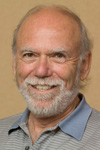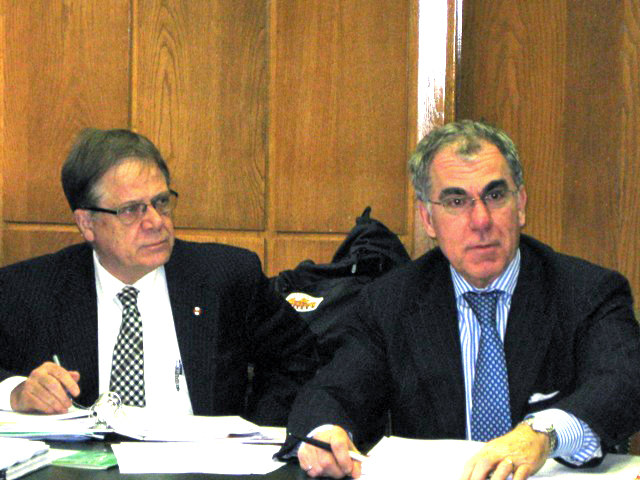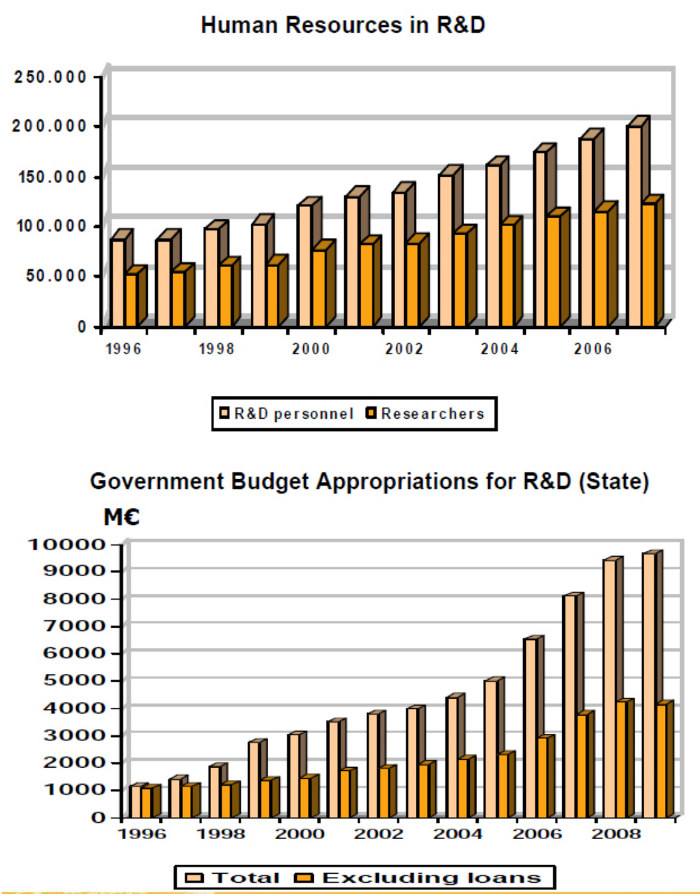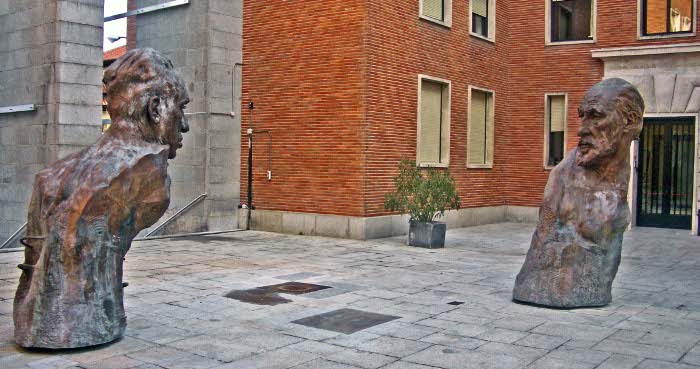Director's Corner
5 February 2009
 Barry Barish |
FALC meets in Madrid
The Funding Agencies for Large Colliders (FALC) held its semi-annual meeting in Madrid, Spain on 19 January. FALC is an informal group of agency and government representatives that provides oversight for the Global Design Effort on resource and project planning matters. More broadly, FALC is a forum for information exchange for agency and government representatives from the different countries, especially regarding major international initiatives in particle physics. The Madrid meeting marked the transition of the chairmanship of FALC from Roberto Petronzio (the National Institute of Nuclear Physics INFN, Italy) to Pierre Coulombe (National Research Council, Canada). The meeting had two components: presentations of science in Spain and discussions of the worldwide particle physics programme, including planning for the International Linear Collider, by FALC.
The FALC meeting began with a very informative overview of "Science and Technology in Spain" by José M. Fernández de Labastida, Spain's Secretary General for Science and Technology Policy. He explained the structure of science in Spain, the funding and research organisations, as well as connections to the universities and industry. His talk was supported by many graphs that in different ways demonstrated the rapid growth of science support and productivity in Spain in recent years. Impressively, over the past decade, the direct government appropriations for R&D have quadrupled, while the number of R&D researchers and personnel have doubled. The results of this increase is evident in large visible projects, like the 10.4-metre telescope in the Canary Islands, ALBA, the third-generation light source in Barcelona, and the Spanish bid to host the proposed large neutron spallation facility. But the country is also very visible in particle physics with the increased role in the Large Hadron Collider at CERN, and more generally in high-energy physics. I will address our meetings with the Spanish particle physics groups regarding participation in the GDE/ILC efforts in more detail next week.
The second Spanish presentation was by José Vicente García Ramos, the Scientific Deputy Director of the Spanish Science Research Council, CSIC, who hosted the FALC meeting. CSIC has a long distinguished history and role in Spanish science and is now a state agency under the Ministry of Science and Innovation. Two impressive statues representing their Nobel Prize winners adorn the entrance to the CSIC building, where the FALC meeting was held (Santiago Ramón y Cajal, Nobel Prize in Physiology or Medicine 1906, and Severo Ochoa, Nobel Prize in Physiology or Medicine 1959). CSIC is the biggest and most important public institution in Spain devoted to multidisciplinary scientific and technological research, and a large fraction of the science and measured science productivity in Spain is associated with CSIC.
Although the development of science in Spain has been impressive, some problems were also pointed out. While scientific productivity, in terms of publications, citations, etc has increased, there has not been a similar increase in new patents or other technological or industrial gains. It also seems that future growth may be as limited by the skilled workforce available as by the availability of funds. Lastly, the global economic downturn will undoubtedly impact Spanish technology and science in the future.
At the FALC meeting, I reported on general progress and plans for the ILC, Marc Ross, ILC Project Manager, on Superconducting RF status and on the ILC/CLIC joint activities, Brian Foster, European Regional Director, on our budding efforts on ILC governance, and Maxine Hronek the GDE Office Administrator, to the FALC Resource Group on our common fund and request which was accepted for next year. FALC considered and discussed broader issues at this meeting. They discussed broadening the membership to include all countries with significant programs in particle physics and steps are being taken in that direction. They also discussed broadening the mandate beyond just the major projects now being discussed, as well as mechanisms to make FALC have a more effective interface with governments. These are ongoing discussions that will be continued at the next FALC meeting to be held in Quebec City next July.
-- Barry Barish


